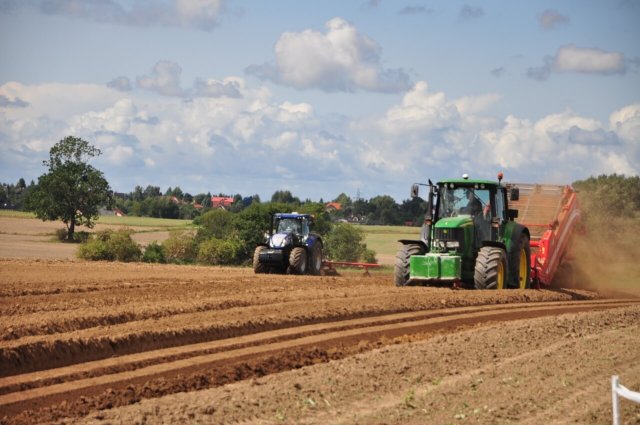The European Investment Bank (EIB) is lending EUR 450 million to Romania to finance its national contribution to the implementation of the Romanian Rural Development Programme (RDP) together with grants from the European Agricultural Fund for Rural Development in the period 2014-2020. The loan was signed on the margins of the meeting of the EIB’s Board of Directors taking place in Bucharest on 17-18 September.
According to the press release of the European Investment Bank, the EIB loan will co-finance rural development projects supported by EU funds totalling EUR 5.4 billion across the whole of Romania.
It will support the modernisation of 3,000 farms and co-finance 400 projects focused on the processing and marketing of agricultural products and 750 schemes to improve services for the rural population.
The Ministry of Agriculture and Rural Development will be the promoter of the project, while public and private entities will be the final beneficiaries of the loan signed between the EIB and the Ministry of Public Finance.
This is the second EIB operation supporting Romania’s Rural Development. The previous one, a loan of EUR 300 million for Romania’s 2007-2013 Rural Development Plan, has been fully disbursed and benefited some 900 village infrastructure projects, 4,000 famers and agri-food and forestry SMEs.
Background: the National Rural Development Programme (funded by the European Agricultural Fund for Rural Development) supports the strategic development of rural areas through the strategic approach of the following objectives:
OS1 Restructuring and increasing the viability of agricultural holdings
OS2 Sustainable management of natural resources and combating climate change
OS3 Diversification of economic activities, job creation, improvement of infrastructure and services for improving the quality of life in rural areas (P6) .
The main priorities on rural development for the period 2014-2020 are the following:
- Modernizing and increasing the viability of agricultural holdings through their consolidation, openness to the market and processing of agricultural products;
- Encourage rejuvenation of farmers’ generations by supporting the setting-up of young farmers;
- Developing basic rural infrastructure as a prerequisite for attracting investment in rural areas and creating new jobs and implicitly for rural development;
- Encouraging the diversification of the rural economy by promoting the creation and development of SMEs in non-agricultural sectors in rural areas;
- Promoting the fruit sector as a sector with specific needs through a dedicated subprogram;
- Encouraging local development placed under the responsibility of the community through the LEADER approach. LEADER cross-cutting competence improves competitiveness, quality of life and diversification of the rural economy, and combating poverty and social exclusion.
For further information: EIB – Press Release

